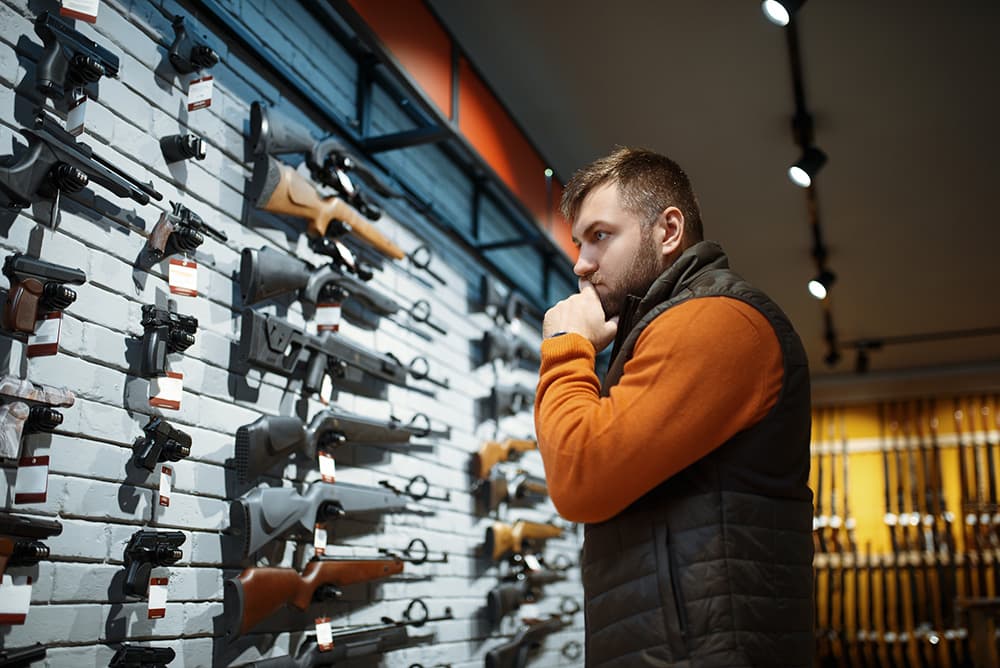In Washington state, House Bill 2118, sometimes referred to as the FL Killer Bill, stands to impact gun shops in the Evergreen State.
The proposed legislation requires that shops like yours adhere to more regulations, making the industry landscape even trickier to navigate.

The complex firearms ecosystem.
Starting an online firearms store is a process that already is intricate to navigate. These types of businesses are costly to launch and are always considered high risk for a number of reasons.
For one thing, many financial institutions do not want to partner with shops in this sector because the industry is more susceptible to chargebacks.
These occur when a buyer contacts their bank and asks for a refund of their gun or ammo purchase price without first consulting you, the merchant. This can lead to added costs to dispute and may even result in higher fees or other penalties.
Additionally, firearms sales continue to be controversial, and some lenders want to avoid becoming embroiled in this divisive issue.
Moreover, the sector is already subjected to numerous state and federal regulations. Although they have been put in place to protect customers and merchants, it requires time and financial assets to remain in compliance with them.
Most traditional payment processing companies prefer to avoid expending their resources in this way. Therefore, anyone wanting to do business in this niche must obtain high-risk payment processing for the firearms industry.
Finally, it is already very expensive to secure a gun shop. Even now, before any new laws have gone into effect, store owners protect their investment and their communities by installing robust physical safety and security measures.
Many believe that the measures that are already in place are quite effective in their own right, citing the negligible numbers of gun shop robberies.
HB 2118 explained.
Proponents of this bill presented it to the legislature with the intention of enhancing gun safety in the state. To start, HB 2118 would impose additional mandatory security enhancements on gun shops.
Dealers would be required to install audio and video surveillance systems and to store firearms in safes or vaults. Additionally, each door or window would be required to include bars or grates, a security screen, or commercial-grade metal doors.
The digital security system would need to consist of both motion and sound detectors and would be used to record all business transactions.
The systems would need to operate 24 hours a day. Only the licensed dealer and other specified recipients such as law enforcement officials would be able to have access to the digital content.
Employees would also undergo additional scrutiny. Once this bill goes into effect, dealers would be required to conduct annual background checks on their workers.
Since firearms have the potential to cause grave injury or death, they pose a higher risk for anyone involved in their sales. Consequently, this legislation would require all gun dealers to carry at least $1 million in liability coverage per incident. Any law enforcement trace requests would be required to be held for six years.
Since HB 2118 was introduced, it has undergone several amendments. Dealers selling less than $1,000 per month on average over the course of a year are exempt, for example. The implementation date has moved to Aug. 1, 2025.
Also, storage of video data has been decreased from a mandatory six years to two years for checkout and display areas and 45 days for motion detection recordings. Fire safes are no longer required for storage when the business is closed.
Finally, the building where the dealership is located is considered to be acceptable secure storage. This is the case as long as it meets the defined placement of security doors, bars, cameras, screens, alarms, etc.
How HB 2118 will affect Washington gun dealerships.
The amendments that were eventually placed on the law before it was passed have removed some of the financial weight from Washington gun sellers.
Even so, many small operators could struggle under the added financial and regulatory burden.
Now that HB 2118 has been signed into law by the governor, the time has come to take action to safeguard your store and livelihood. With implementation scheduled for Aug. 1, 2025, shop owners like you are now on notice.
You will need to examine your current physical and security systems, making any necessary changes and upgrades before mid-2025.



